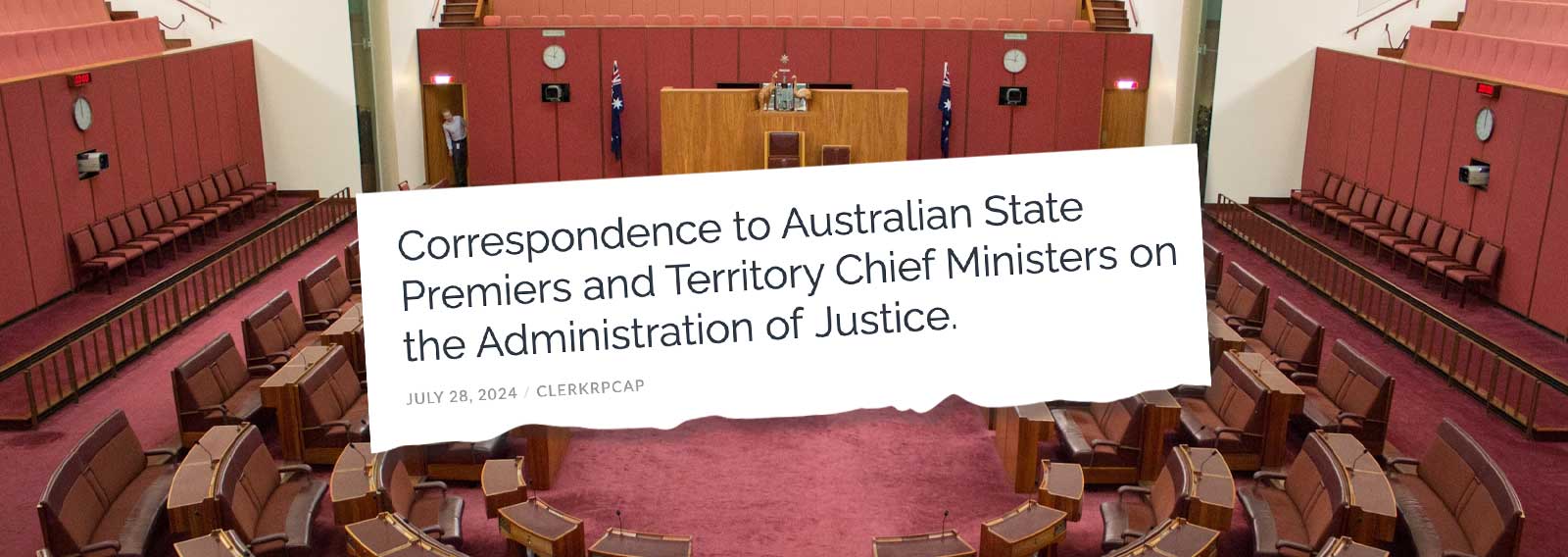The Reformation Presbyterian Church has penned an open letter to the nation’s leaders urging them to uphold true justice in Australia, as defined by the Moral Law of God and as summed up in the Ten Commandments.
In the open letter published on the 28th of July, the Presbytery called on state Premiers, Chief Ministers, Police Ministers, and Senators in the Federal Parliament to “repent” of their present “negligence” in the administration of justice in the States and Territories of Australia.
This negligence, the church writes, has led to “great and widespread outcry in the nation” over the “increasing and outrageous” rise in domestic violence, gang violence, youth crime, theft, and property damage, along with drug peddling and usage.
“Your duty under God is not education, social work, or rehabilitation,” the letter states. “Your duty is to punish criminals (using just and equal systems), and to ensure that victims are protected and recompensed.”
The church notes that the Bible holds out three basic instruments for the administration of justice, only rarely using imprisonment as a form of punishment, adding that “even then ordinarily as a ‘holding’ until sentence is passed, rather than as a sentence (Num. 15:34; Ezra 7:26).
According to the letter, these three instruments are (1) Restitution; (2) Corporal punishment; and (3) Capital punishment.
First, restitution is defined as the required repayment from those who have stolen and/or damaged the property or persons of others (Ex. 22:7; Prov. 6:30-41; Ex. 21:18-22:15; Lev. 6:2-5).
“There is financial penalty for the criminal and compensation for the victim,” the letter states. “This is justice, as well as being educational for the criminal, and a deterrent to others.
“The burden of crime (especially theft and property damage and bodily damage) is thus moved from the victim and society onto the criminal (who is also forced to work and pay his debts and thereby learns to work).”
Second, the letter defines corporal punishment, stating that “those who harm others deserve to receive comparable harm themselves.”
The church explains that it is in this that the “criminal is penalized proportionately” for the crime committed (Ex. 21:23-25; Deut. 25:2-3; 19:16-21; Prov. 10;13; 17:10; 19:29; 26:3; Lk. 12:47-48).
“It is just, simultaneously punishing and educating the criminal, while also deterring others from similar crimes. It further brings closure to the victims.”
Third, the letter states that capital punishment is “required at the very least” for murder (Gen. 9:5-6; Deut. 17:6; Num. 35:30-34; Ezra 7:26; Acts 25:10-11; Rom. 13:4).
“This is justice and also a deterrent to others,” the letter says, adding that it also brings “closure to the family and friends of the victims, including the comfort of being safe from the murder/s of their loved ones.”
The church adds that for the murderer, “knowledge of their coming execution is opportunity for them to repent and turn to God, in whom they can find forgiveness and eternal life through faith in Jesus Christ.”
The letter acknowledges the God-given responsibility of the civil government, warning that all civil rulers are personally accountable to God for their duties while in office (2 Chr. 19:5-7; Ps. 2:10-12).
The Presbytery concludes by exhorting Australia’s leaders to repent of their “negligence in the administration of justice in the States and Territories of Australia, noting Ecclesiastes 8:11, which “aptly describes this country today.”
The verse states, “Because sentence against an evil work is not executed speedily, therefore the heart of the sons of men are fully set in them to do evil.”
The church has invited state and national leaders to contact the Presbytery if they wish to “understand more of the teaching of God’s Word relating to these things.”
The letter, which was published on the denomination’s church website, was approved by the Presbytery and has been sent to Premiers and Chief Ministers of the various Australian States and Territories, with courtesy copies to the Police Minister in each jurisdiction, along with all Senators in the Australian Federal Parliament.























